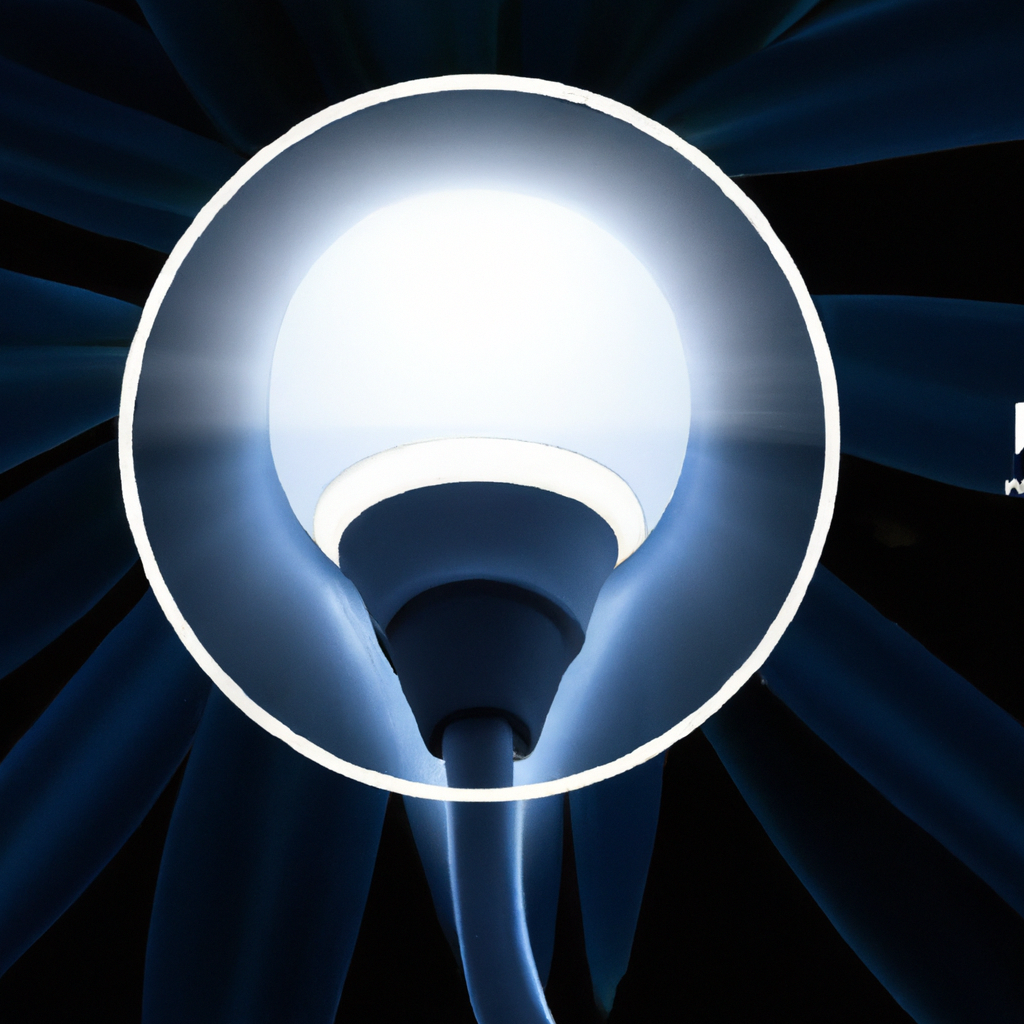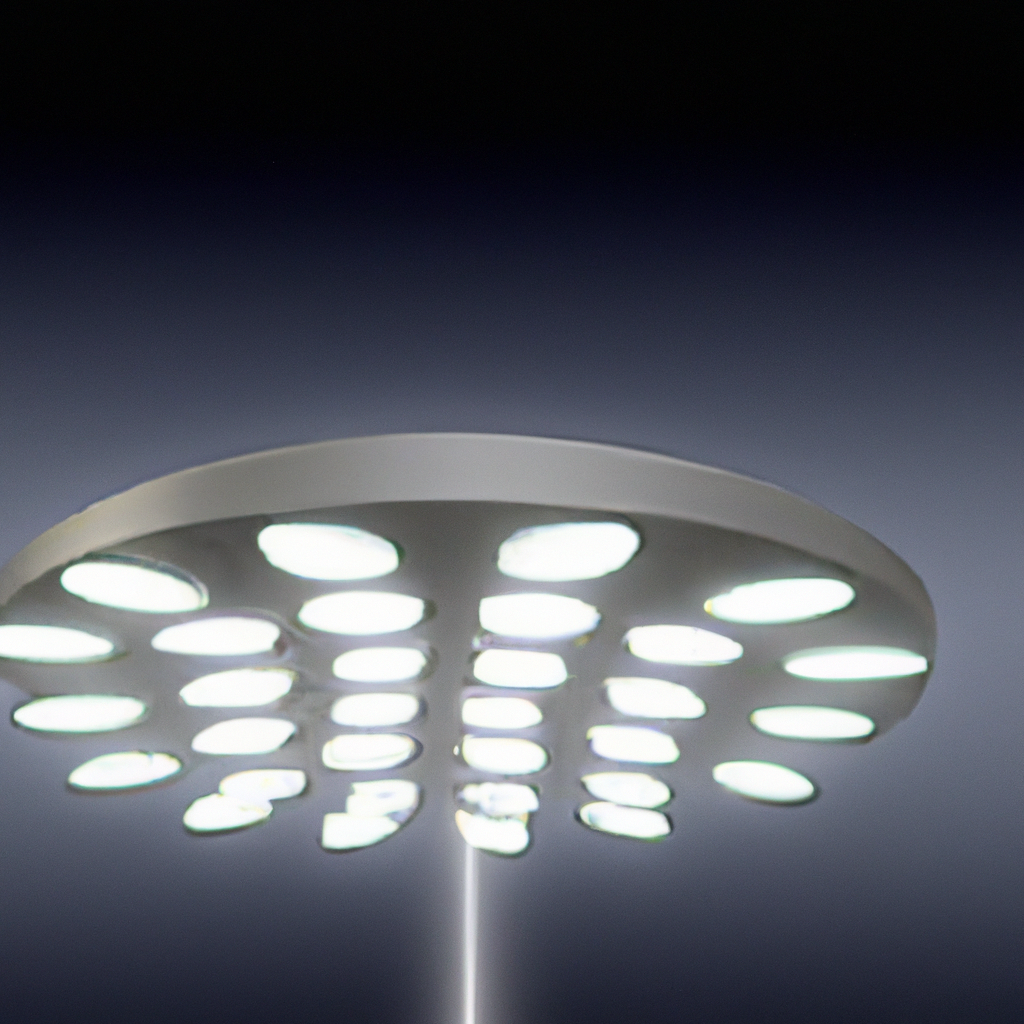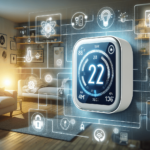Imagine having complete control over the lighting in your home with just a few taps on your smartphone. This is made possible by smart light hubs, the unsung heroes of a smart lighting system. These compact devices act as the command center for all your smart lightbulbs, allowing you to adjust brightness, change colors, and even schedule lighting patterns. In this article, we will explore the crucial role that smart light hubs play in creating a seamless and customizable lighting experience for your home. So, let’s dive in and discover how these little hubs can transform your living space into a truly smart and modern haven.

Overview of Smart Lighting System
A smart lighting system refers to an advanced lighting setup that enables you to control and customize your lights conveniently and intelligently. It consists of various components, including smart light bulbs, switches, motion sensors, and, most importantly, smart light hubs. These hubs serve as the central control unit for the entire lighting system, allowing seamless communication and control between different devices.
Introduction to Smart Light Hubs
Smart light hubs are the brains behind an effective smart lighting system. They serve as the central command center, connecting and coordinating all the various components of the system. These hubs are responsible for receiving commands, transmitting them to the respective devices, and ensuring smooth communication between all the components.
Functionality of Smart Light Hubs
The primary functionality of smart light hubs is to control and manage the lighting system. They provide a centralized interface through which you can adjust the brightness, colors, and scheduling of your lights. By connecting to your home’s Wi-Fi network, these hubs enable you to control your lights remotely through a mobile app or even voice commands.
Features of Smart Light Hubs
Smart light hubs come equipped with a range of features that enhance the functionality and usability of a smart lighting system. Some of the common features include:
Compatibility: Smart hubs are designed to work seamlessly with various smart devices, including bulbs, switches, and sensors, ensuring compatibility and interoperability.
Voice Control: Many smart light hubs are compatible with popular voice assistants like Amazon Alexa and Google Assistant, allowing you to control your lights effortlessly with simple voice commands.
Automation and Scheduling: Smart hubs enable you to create custom lighting schedules and automation routines. You can set your lights to turn on and off at specific times, as well as create personalized scenes for different moods and occasions.
Integration with Smart Home Systems: Smart light hubs can integrate with other smart home systems, such as security systems, thermostats, and entertainment systems. This integration allows for enhanced automation and coordination between different aspects of your home.
Wireless Connectivity: Smart light hubs offer wireless connectivity options, such as Wi-Fi, Zigbee, Z-Wave, or Bluetooth. These options ensure reliable and seamless communication between the hub and the connected devices.

Communication and Control
Centralized Communication
One of the key functions of smart light hubs is to establish centralized communication within a smart lighting system. They serve as a bridge between the user’s commands and the various connected devices. When you give a command to the hub, it relays the information to the respective bulbs or switches, enabling them to carry out the desired actions.
Wireless Connectivity
Smart light hubs leverage wireless connectivity to establish communication with the connected devices. Wi-Fi is a popular option for smart hubs due to its widespread availability and reliability. Zigbee and Z-Wave are wireless protocols specifically designed for smart homes, offering low-power consumption, long-range communication, and the ability to create a mesh network for enhanced connectivity. Bluetooth is another wireless connectivity option that provides direct communication between the hub and the connected devices within a limited range.
Integration with Smart Home Systems
A significant advantage of using smart light hubs is their ability to integrate with other smart home systems. This integration enables the synchronization of multiple aspects of your home automation, such as lights, security systems, thermostats, and entertainment devices. By integrating with these systems, smart hubs can create more sophisticated automation routines and enhance the overall functionality of your smart home.
Wireless Connectivity Options
Wi-Fi
Wi-Fi connectivity is a common feature in smart light hubs. By connecting to your home’s Wi-Fi network, the hub can communicate with your smartphone or other devices, allowing you to control your lights remotely. Wi-Fi offers a reliable and robust connection, and it is widely supported by most smart devices and voice assistants.
Zigbee
Zigbee is a wireless communication protocol specifically designed for smart homes. Zigbee-based smart hubs create a mesh network that allows devices to communicate with each other, enhancing the range and reliability of the smart lighting system. Zigbee also consumes less power compared to other wireless protocols, making it an energy-efficient option for smart light hubs.
Z-Wave
Similar to Zigbee, Z-Wave is a wireless protocol that enables smart devices to communicate with each other. Z-Wave operates on a different frequency band than Zigbee and typically offers longer-range communication. Z-Wave devices create a mesh network that extends the range and scalability of the smart lighting system. Z-Wave is known for its high interoperability, allowing seamless integration between different Z-Wave certified devices.
Bluetooth
Bluetooth is a wireless communication technology commonly used for short-range connections. Some smart light hubs utilize Bluetooth connectivity, allowing direct communication between the hub and the connected devices. Bluetooth provides a simple and convenient way to control your lights without the need for an internet connection. However, its range is limited compared to Wi-Fi, Zigbee, or Z-Wave.

Advanced Lighting Control
Individual Light Control
Smart light hubs provide the flexibility to control individual lights within your smart lighting system. Through the hub’s interface, you can adjust the brightness, color temperature, and even the color of each individual light. This level of control allows you to create a personalized lighting experience tailored to your specific preferences.
Group Light Control
In addition to individual light control, smart light hubs enable you to control groups of lights simultaneously. Whether it’s grouping lights in a specific room or creating custom zones throughout your home, you can easily turn on, dim, or change the color of multiple lights with just a few taps or voice commands.
Scene Control
Creating scenes is another powerful feature offered by smart light hubs. Scenes allow you to set predefined lighting configurations for different occasions or moods. For example, you can create a “Movie Night” scene that dims the lights, sets them to a warm color temperature, and turns on your home theater system with a single command. With just a tap or a voice command, you can instantly transform the ambiance of your living space.
Scheduling and Automation
Smart light hubs offer the convenience of scheduling and automation. You can program your lights to turn on and off at specific times, helping to simulate occupancy when you’re away from home. Additionally, you can create automation routines that trigger certain lighting actions based on specific events or conditions. For example, you can set the lights to turn on when motion is detected or to gradually brighten in the morning to wake you up naturally.
Compatibility and Interoperability
Compatibility with Different Light Bulb Types
Smart light hubs are designed to be compatible with various light bulb types, including LED, CFL, and incandescent bulbs. This compatibility ensures that you can seamlessly integrate your existing light fixtures into the smart lighting system without the need for extensive rewiring or replacements.
Compatibility with Third-Party Devices and Apps
Smart light hubs often support integration with third-party devices and apps, further expanding their compatibility and interoperability. This compatibility allows you to control your lights through popular apps like Apple HomeKit, Google Home, or Samsung SmartThings. It also enables integration with other devices, such as smart thermostats, security cameras, or voice assistants.

Integration with Voice Assistants
Voice Control Features
Smart light hubs are compatible with popular voice assistants like Amazon Alexa, Google Assistant, or Apple Siri. This integration enables you to control your lights through simple voice commands, adding convenience and hands-free operation to your smart lighting system. You can turn on/off the lights, adjust brightness, change colors, or activate scenes, all by voice.
Compatibility with Popular Voice Assistants
Smart light hubs support different voice assistants, allowing you to choose the one that best fits your preferences. Whether you have an Amazon Echo, Google Nest device, or an Apple HomePod, there is a smart light hub that can seamlessly integrate with your preferred voice assistant, giving you the freedom to control your lights using the voice commands you are most comfortable with.
Smart Hub Ecosystem
Interactions with Other Smart Devices
Smart light hubs are not limited to controlling just the lights. They can interact with a wide range of other smart devices, including security systems, thermostats, audio systems, and more. For example, you can set up automation routines that trigger the lights to flash red when your security system detects a breach. This integration creates a cohesive and synchronized smart home ecosystem.
Expansion and Scalability
Smart light hubs offer the flexibility to expand and scale your smart lighting system. As your needs and preferences change, you can easily add more smart bulbs, switches, or sensors to your existing hub. This scalability allows you to customize your smart lighting setup to fit any room or area in your house, ensuring consistent control and functionality throughout your entire home.

Security and Privacy
Data Encryption and Security Protocols
Smart light hubs prioritize data encryption and security protocols to protect your personal information and ensure the privacy and safety of your smart home. These hubs employ robust security measures, such as encryption algorithms, secure communication channels, and authentication mechanisms, to safeguard the data transmitted between the hub and connected devices.
Privacy Concerns and Measures
While smart light hubs offer convenience and functionality, privacy concerns may arise due to the collection and processing of personal data. However, reputable smart light hub manufacturers take privacy seriously and implement measures to address these concerns. It is essential to choose a trustworthy brand that adheres to strict privacy policies and offers transparency regarding data collection and usage.
Conclusion
Smart light hubs play a crucial role in any smart lighting system, serving as the central control unit and coordinating communication between various smart devices. With features like individual and group light control, scene creation, scheduling, and integration with voice assistants, these hubs provide a convenient and customizable lighting experience. Their compatibility with different bulb types, wireless connectivity options, and integration with other smart home systems make them a versatile addition to any modern home. As technology continues to evolve, smart light hubs are expected to adapt and offer even more advanced features, promising an exciting future for smart lighting systems.










